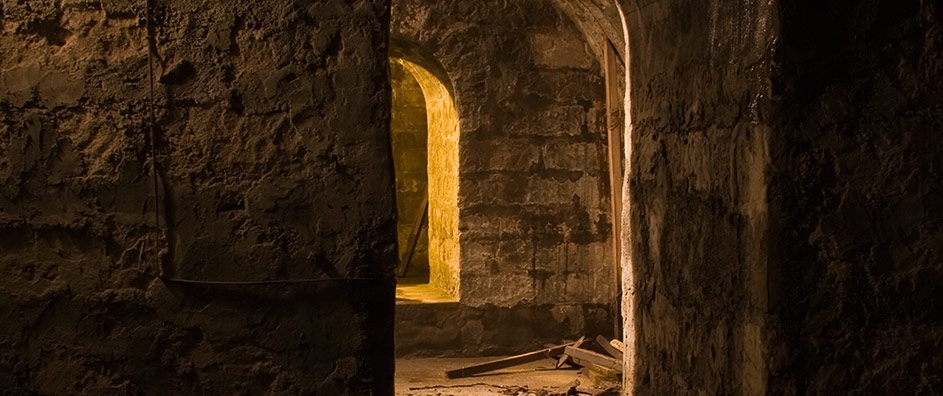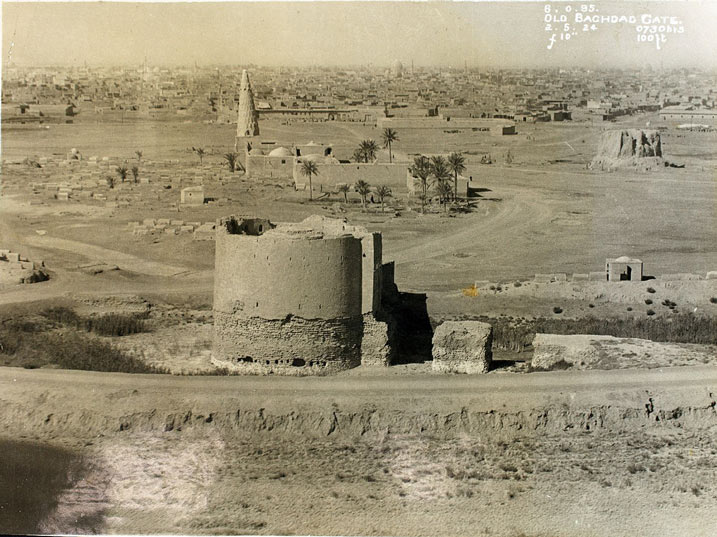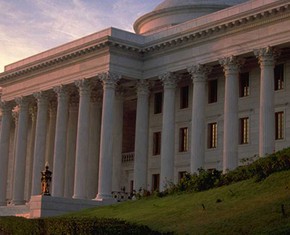The views expressed in our content reflect individual perspectives and do not represent the authoritative views of the Baha'i Faith.
Many of the Babis who were imprisoned with Baha’u’llah were executed. Baha’u’llah’s enemies, led by the shah’s own mother, sought to add his name to the death list. None knew from day to day what his fate would be. Yet in spite of this the prisoners, inspired by Baha’u’llah’s example, maintained their courage and fortitude. Baha’u’llah later described what went on in that dark, dismal place:
We were all huddled together in one cell, our feet in stocks, and around our necks fastened the most galling of chains. The air we breathed was laden with the foulest impurities, while the floor on which we sat was covered with filth and infested with vermin. No ray of light was allowed to penetrate that pestilential dungeon or to warm its icy-coldness. We were placed in two rows, each facing the other. We had taught them to repeat certain verses which, every night, they chanted with extreme fervour. ‘God is sufficient unto me; He verily is the All-sufficing!’ one row would intone, while the other would reply: ‘In Him let the trusting trust.’ The chorus of these gladsome voices would continue to peal out until the early hours of the morning.
Their reverberation would fill the dungeon, and, piercing its massive walls, would reach the ears of Násiri’d-Dín Sháh, whose palace was not far distant from the place where we were imprisoned. ‘What means this sound?’ he was reported to have exclaimed. ‘It is the anthem the Babis are intoning in their prison,’ they replied. The Sháh made no further remarks, nor did he attempt to restrain the enthusiasm his prisoners, despite the horrors of their confinement, continued to display. – The Dawnbreakers, pp. 631-632.
That dungeon, with its pestilence and daily horrors, became the scene of one of the most significant spiritual events in human history. For it was here that the ministry of Baha’u’llah was born. Baha’u’llah was none other than the Promised One foretold by the Bab and prophesied in all of the holy scriptures of the world’s great religions. He later recounted a series of powerful and profound spiritual experiences that occurred during his confinement:
During the days I lay in the prison of Tihrán, though the galling weight of the chains and the stench-filled air allowed Me but little sleep, still in those infrequent moments of slumber I felt as if something flowed from the crown of My head over My breast, even as a mighty torrent that precipitateth itself upon the earth from the summit of a lofty mountain. Every limb of My body would, as a result, be set afire. At such moments My tongue recited what no man could bear to hear.
One night in a dream, these exalted words were heard on every side:
‘Verily, We shall render Thee victorious by Thyself and by Thy pen. Grieve Thou not for that which hath befallen Thee, neither be Thou afraid, for Thou art in safety. Ere long will God raise up the treasures of the earth—men who will aid Thee through Thyself and through Thy Name, wherewith God hath revived the hearts of such as have recognized Him.’
While engulfed in tribulations I heard a most wondrous, a most sweet voice, calling above My head. Turning My face, I beheld a Maiden—the embodiment of the remembrance of the name of My Lord—suspended in the air before Me. So rejoiced was she in her very soul that her countenance shone with the ornament of the good-pleasure of God, and her cheeks glowed with the brightness of the All-Merciful. Betwixt earth and heaven she was raising a call which captivated the hearts and minds of men. She was imparting to both My inward and outer being tidings which rejoiced My soul, and the souls of God’s honored servants. Pointing with her finger unto My head, she addressed all who are in heaven and all who are on earth, saying: “By God! This is the Best-Beloved of the worlds, and yet ye comprehend not. This is the Beauty of God amongst you, and the power of His sovereignty within you, could ye but understand. This is the Mystery of God and His Treasure, the Cause of God and His glory unto all who are in the kingdoms of Revelation and of creation, if ye be of them that perceive.” – God Passes By, pp. 101-102.
Baha’u’llah kept these experiences to himself for the time being and would not reveal his true station for some time to come. Meanwhile, his enemies continued to plot his demise. But Baha’u’llah was not an ordinary prisoner. Such a prominent personage could not be executed without evidence, even in that corrupt regime, and there was none. Moreover, he had a number of friends in high positions, some of whom rallied to his defense. Among them was his brother-in-law, who served as secretary of the Russian legation in Tehran. He succeeded in getting the Russian minister, Prince Dolgorouki, to intercede on behalf of Baha’u’llah.
This act, combined with intercessions from other quarters, saved him from execution. Instead, Baha’u’llah was commanded to gather his family and, within a month, leave Iran forever.
Baha’u’llah was forced to hasten out of the country in the dead of winter, accompanied by his nearest kin and a few officials acting as escorts. Forced to abandon nearly all of their few remaining possessions, the little group made its way to the province of Iraq, in the neighboring Ottoman Empire.
Fully aware of his divine mission, Baha’u’llah knew that further trials were in store. However difficult the past few years had been, the years to come would bring far greater suffering. Far from being discouraged, however, Baha’u’llah faced the future with complete confidence and assurance. He remarked to his companions that all of his enemies’ schemes had come to nothing.
Baha’u’llah and his family arrived in Baghdad in April 1853. He would never see his homeland again.

















Comments
Sign in or create an account
Continue with Googleor